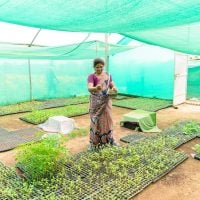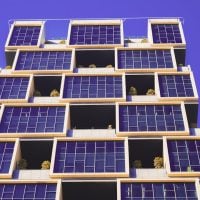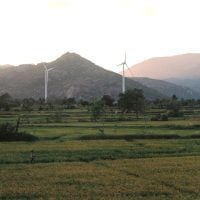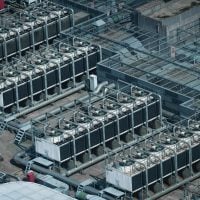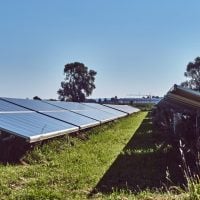Deadline: 18-Aug-2024
The Small Grants Programme of the Global Environmental Facility (GEF SGP) in Kazakhstan, operating under the auspices of the United Nations Development Programme (UNDP), is now accepting project applications for the grant competition as part of its seventh operational phase.
Thematic Areas
- Project proposals should focus on one of the following thematic areas:
- Mitigation of Climate Change Impacts
- Reducing Land Degradation Processes
Priority will be given to projects that:
- Geographical Scope: Focus on the Kostanay, Ulytau, Abay, and Zhetysu regions.
- Climate Change Mitigation: Promote renewable energy, energy-saving technologies, and thermal modernization.
- Partnerships and Cooperation: Involve collaborations with other donors, development organizations, programs, and the private sector.
- Social Inclusion: Target women, youth, and other socially vulnerable groups.
Funding Information
- Maximum Funding: USD 50,000
- Project Duration: Up to 15 months
Activities
- The following types of activities are possible on the topic of “reducing land degradation” (this list is not exhaustive):
- Irrigation water conservation, including drip irrigation, sprinkler irrigation, water metering, drainage reuse, flood and rainwater harvesting, restoration and conservation of springs, streams, etc.
- Soil conservation and restoration methods (e.g. crop rotation, conservation tillage, organic farming, restoration of saline or abandoned land, etc.)
- Adaptive methods in agriculture (for example, sowing drought-resistant crops, snow retention, protection and restoration of forest belts, use of digital technologies, etc.)
- Sustainable pasture/grassland management practices (e.g. seasonal use of pastures or rotation of pastures in summer/winter, rotation of pastures on public pastures, production of ready-to-eat feed, use of digital technologies, etc.)
- Effective methods of growing and processing vegetables (hydroponic cultivation, various types of greenhouses, use of vermicompost, drying, canning, etc.)
- Agritourism
- Sustainable, income-generating farming and production systems, e.g. co-production, rural producer/user collaboration, lower production costs, increased yields through improved land and water management practices, improved access to markets, ecosystem services, etc.
- Capacity building of pasture users and farmers in the field of sustainable pasture and land management (farmer field schools, field days, etc.)
- The following types of activities are possible on the topic of “climate change” (this list is not exhaustive):
- Promotion of the use of low-power renewable energy sources (solar installations, mini-hydroelectric power plants, biogas plants, etc.)
- Introduction of energy-saving technologies and approaches in heating, lighting, water heating, etc.,
- Comprehensive thermal modernization of multi-apartment residential buildings, social facilities and educational facilities, etc.
- Introduction of energy-efficient materials in the construction and renovation of residential buildings and household facilities. values
- Implement waste management schemes (collection, disposal and recycling) at the local level to reduce CO2 emissions. This category of projects involves supporting no more than 2-3 projects within the funding limit of no more than 20% of the total amount of grant resources on the subject of “climate change”.
Criteria for Projects
- All projects supported by the GEF SGP must meet the following criteria:
- Achieving global environmental benefits. The project must be aimed at solving problems in one or more priority thematic areas of the GEF:
- Changing of the climate;
- Reduced land degradation.
- Involvement of the local population in the implementation of the project. The project must ensure the active involvement of the focus group (local community) in the project implementation process, as well as its monitoring and evaluation.
- Connection with the practice of sustainable livelihoods of the local population. The project should ensure the expansion of the local population’s ability to manage their economy rationally; development of additional opportunities for entrepreneurship, crafts, expansion of the market for goods and services at the local level; providing additional jobs; receipt of income during the implementation of the project and after its completion.
- Formation of public environmental consciousness. The project should include the following activities: work with the population and local media to educate, promote and attract the attention of all segments of the population and leaders to the problem being solved by the project; initiation of local environmental activities; activation of the local population in solving environmental problems.
- Development of local capabilities. During the implementation of the project, the following should be achieved: expanding the population’s access to sources of technical assistance and new technologies; partnership with the local population, local executive bodies and public associations; education and training of interested groups of the population; assessment of local capabilities and available resources.
- Gender approach. The following must be ensured: the involvement of women in the development and implementation of the project; providing jobs for women; strengthening the role of women in solving environmental problems and in the decision-making process; provision of educational and educational programs for women, including materials on rational housekeeping.
- The sustainability of the project requires the presence of such aspects in the project as: compliance with the strategies and state development programs of the country; compliance with regional development directions and environmental plans; calculation of the economic effect of the technologies used; stimulating the activities of local governments, which will create the basis for the implementation and duplication of the project; the possibility of attracting business partners, donor organizations, other NGOs, local residents for project development, technology transfer and expansion of the scale of activities; development of internal project resources.
- Availability of additional funding (own contribution of the project implementer; contribution of interested parties; attractiveness of the project for potential donors).
- Influence on public policy: assistance in the preparation of regulatory, methodological and other materials for decision-making by government bodies to improve the environmental situation; the ability of the implemented project to influence state and regional sustainable development programs; lobbying for strategic objectives to improve the state of focal ecosystems).
- Connection with other partners and programs: the possibility of partnership with other projects implemented by the GEF/SGP, UNDP and other donors; participation of project implementers in other projects; the project is a component (element) of other projects and programs.
- Possibility of duplication and replication of the project: to what extent the project can be applied (implemented) in several regions of the country; the results of the project may be in demand by representatives of other industries and sectors of the economy, organizations, NGOs, and citizens.
- Achieving global environmental benefits. The project must be aimed at solving problems in one or more priority thematic areas of the GEF:
Geographic Focus
- Project activities should target measures to reduce negative impacts on steppe, semi-desert, or desert ecosystems. Eligible geographic areas include rural and suburban regions of Kostanay, Akmola, Karaganda, Ulytau, Kyzylorda, Almaty, Zhetysu, Turkestan, East Kazakhstan, and Abay. Projects cannot be implemented in regional centers or the cities of Shymkent, Astana, and Almaty.
Eligibility Criteria
- Applications are invited exclusively from registered Kazakhstani non-profit, non-governmental public organizations (NGOs). Proposals from government agencies, enterprises, commercial entities (LLPs, etc.), and research organizations are not eligible for consideration.
For more information, visit UNDP.






